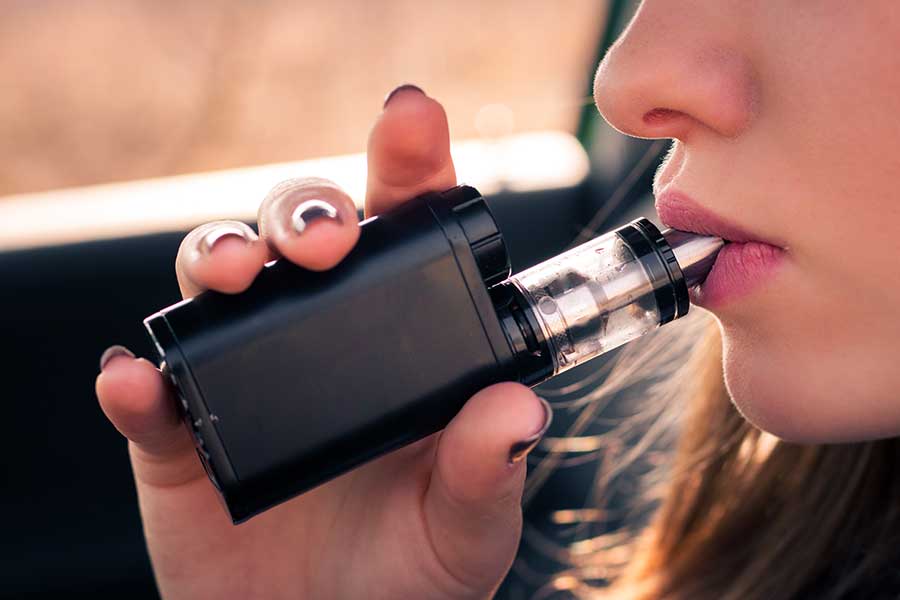How to Talk with Your Child About the Dangers of Vaping

Photo credit: Getty Images
There’s a new gateway to the gateway drug: vaping. Vaping is advertised to adults as a safe nicotine cessation tool – a way for smokers to wean themselves off of cigarettes for good. It’s meant as a quitting mechanism however, the idea of vaping as a “healthy alternative” to cigarettes has sent the wrong message to teens.
Instead, vapes have become an introductory device to nicotine. In fact, according to the Monitoring the Future report, about one in three teenagers reported using a vaping device in the past year.
One of the consequences to vaping among teenagers isn’t just a nicotine or tobacco addiction but it also increases the potential for experimentation with other drugs like marijuana; Vaping is an increasingly popular method of marijuana consumption for teenagers.
While marijuana usage has become more normalized – from politicians advocating for legalization to the popularity of medical marijuana use – the effects of marijuana on the developing mind haven’t shifted with the culture. Additionally, if you live in a state that has legalized marijuana, the likelihood that your teen has experimented with the drug is even higher.
Early marijuana usage in teens and young adults is linked to lower IQs, a decline in decision making skills, and what is perhaps most frightening, an increased chance of developing a serious substance abuse problem later in life. That is why it is so important to talk to your kids early on about making good choices.
For example, only 14 percent of eighth graders reported using marijuana but that statistic jumps to 31 percent by tenth grade then 45 percent by senior year. Preventing these risky behaviors while your kids are young reduces the odds of more significant problems with substances later in life.
Research shows that parents influence their children’s decisions to use substances. Talking about drug use and addiction is not an easy discussion but there’s a way to do it effectively. Be consistent with your message. Outline the consequences to substance abuse. Not only should you talk about punishments and expectations at home but make sure your child understands the criminal and legal consequences.
Next, explain the science and offer facts they can easily digest. For example, there’s a permanent 8 point drop in IQ associated with teenage marijuana use. It also exacerbates existing mental health disorders like depression and anxiety.
Ask them about their experiences. Have they been offered drugs? Did they say yes or no? Why did they respond that way? Lastly, be honest about your own experience. Lying will only compromise your relationship but if you have used substances in the past it’s important not to glamorize your experiences. Instead, focus on why you chose not to or why you made the decision to stop.
For more information and to learn more about drug and alcohol prevention, visit caron.org.
This is a paid partnership between Caron Treatment Centers and Philadelphia Magazine


